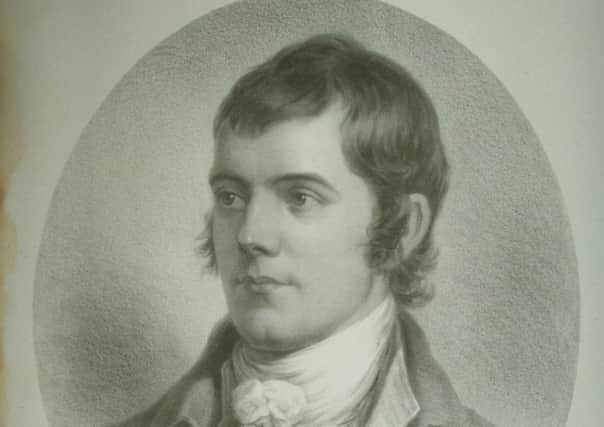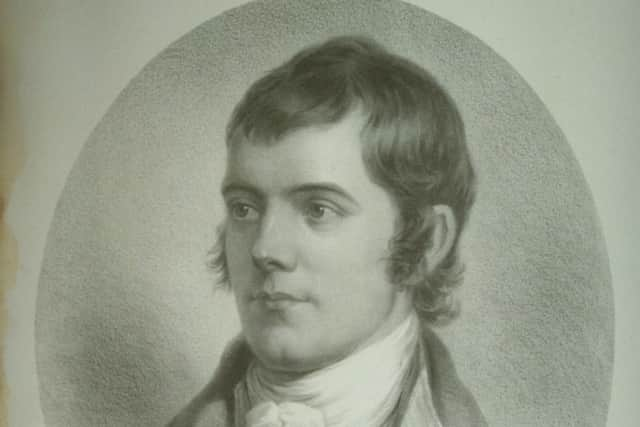Five inspirational quotes from Robert Burns


Robert Burns was an iconic writer and bard, whose poems continue to delight and entertain fans of his work to this day.
Here is a selection of inspirational quotes from the man himself and the meaning behind them.
Burns on love:


Advertisement
Hide Ad“But to see her was to love her, Love but her, and love forever.”
- Taken from the romantic poem Ae Fond Kiss, And Then We Sever
Burns regularly used the topic of love as his muse and is perhaps more famously known for his poem ‘A Red, Red Rose’, but it is in ‘Ae Fond Kiss, And Then We Sever’, that he really captures the complexity of love, focussing on the sorrow of parting never to see each other again.
Burns regularly travelled to Edinburgh and on one such trip became friends with Agnes (Nancy) McLehose, a short affair followed. After writing to each other using pseudonyms ‘Clarinda’ and ‘Sylvander’, Burns wrote the poem - more commonly referred to with the shortened title ‘Ae Fond Kiss’ - after their final meeting.


McLehose, who was married, received the letter in December 1791, before departing Edinburgh for Jamaica to reconcile with her husband.
Burns on education:
“A set o’ dull, conceited hashes, Confuse their brains in college-classes!
They gang in stirks, and come out asses...
Advertisement
Hide AdGie me ae spark o’ Nature’s fire, That’s a’ the learning I desire.”
- Taken from his letters to fellow bard John Lapraik
It is thought that in these letters to fellow Scots bard John Lapraik, Burns poured scorn on what he considered to be the learned thrust towards Anglification that was prevalent at the time.
Advertisement
Hide AdEmphasising his own writing as not being born in the stuffy confines of a classroom and taking inspiration from the poets of Scotland’s past, Burns speaks on his wish to carry on using the language and folk traditions of the land that he lived in.
Burns on rank and privilege:
“The rank is but the guinea’s stamp; the man’s the gowd for a’ that!”
- Taken from A Man’s A Man For A’ That
Throughout his life, Burns was considered to be an altruist and with this poem he is stating that the common man is as good as any king or lord.
Burns on death:
“If there’s another world, he lives in bliss; If there is none, he made the best of this.”
- Taken from On My Own Friend And My Father’s Friend
Burns wrote this as part of a mock epitaph for family friend, William Muir, a miller in Tarbolton, showing the grief he felt at his friend’s death but also the pride at having known him.
This line alludes to the idea that if there is a heaven then William shall surely be in it but if there is not, then he has lived a good life and will find peace in that.
Burns on pride:
Advertisement
Hide Ad“O wad some Pow’r the giftie gie us, To see oursels as others see us, It wad frae monie a blunder free us, An’ foolish notion”
- Taken from To A Louse
This poem gives us a glimpse at Burns’ genius, taking inspiration from seeing a small louse on a Lady’s bonnet at church one day, Burns took the apparently casual observation and used it to craft a commentary on our own airs and graces using satire and humour.
Advertisement
Hide AdThe last verse is an example of his ability to understand the folly of human hubris and translates as:
“Oh, that God would give us the very smallest of gifts
To be able to see ourselves as others see us
It would save us from many mistakes and foolish thoughts
We would change the way we look and gesture
and to how and what we apply our time and attention.”